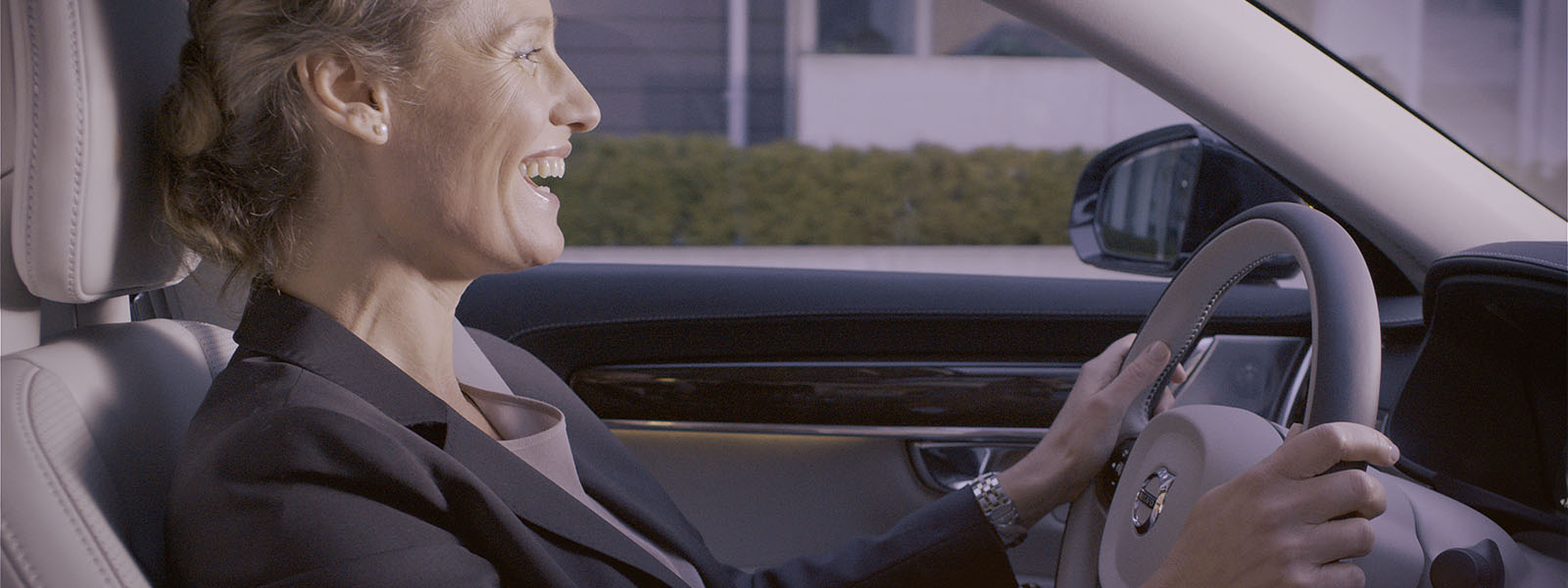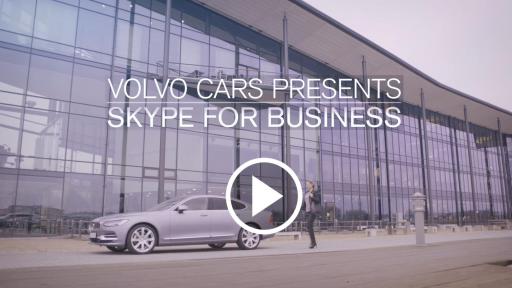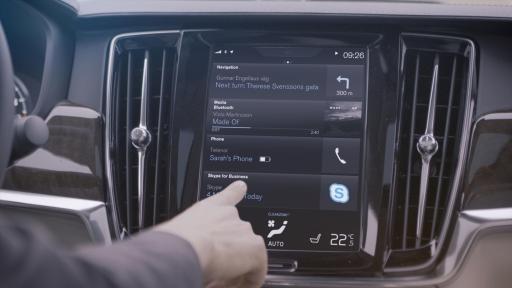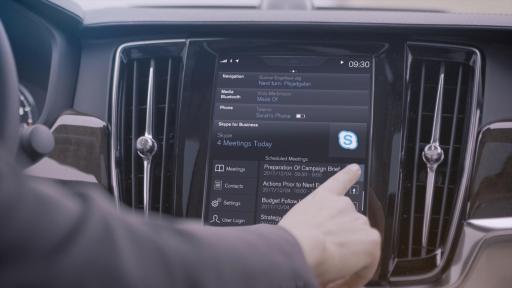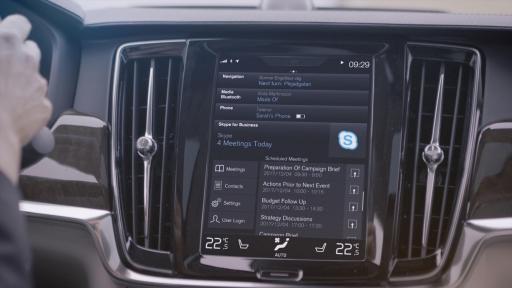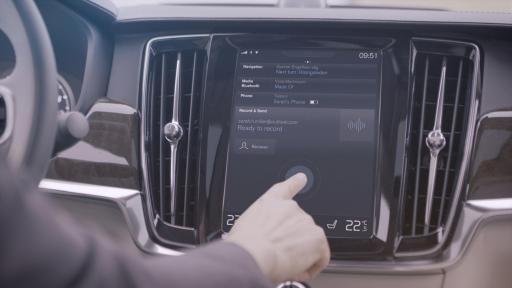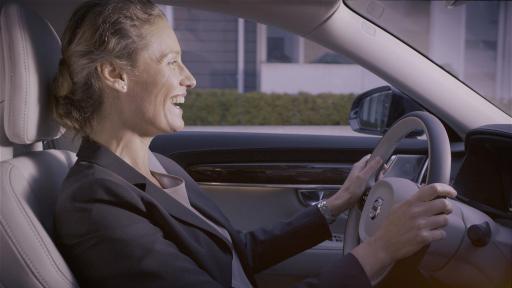Volvo Cars adds Microsoft’s Skype for Business to its 90 Series cars, heralding a new era for in-car productivity
GOTHENBURG, 29th December, 2016 - Volvo Cars, the premium car maker, has announced that it will introduce Skype for Business, Microsoft’s leading collaborative productivity app, to its new 90 Series cars. Volvo Cars is the first carmaker to launch such an in-car productivity tool.
“We’ve all been there. Sitting in the car trying to join a conference call. You either fumble with or drop your phone while trying to connect or you forget the long pin code to join. It’s not the best way to start an important call in the car. On top of all that your attention is not where it should be – on the road. With the addition of Skype for Business all that goes away,” said Anders Tylman-Mikiewicz Vice President Consumer Connectivity Services at Volvo Car Group.
Skype for Business is actively used by millions of people at work around the globe. In Volvo’s 90 Series cars people will be able to view their upcoming meetings and participant details, and join meetings with one click via the large centre display.
“Skype for Business represents another big step forward for our in-car connectivity and communication offer. With the dawn of autonomous cars we see a future where flexible in-car productivity tools will enable people to reduce time spent in the office. This is just the beginning of a completely new way of looking at how we spend time in the car,” said Anders Tylman-Mikiewicz.
Volvo Cars’ approach to the application of technology in their cars is grounded in the desire to make their customers’ lives easier and safer by using the latest relevant technology in a smart way.
Volvo’s partnership with Microsoft also includes the exploration of using Cortana, Microsoft’s intelligent personal assistant, with the express intention of adding seamless voice recognition and contextual insights to support peoples’ daily lives by actively predicting their needs.
“Volvo Cars is leading the way in its recognition that the nature of work is increasingly mobile. People need to be productive from anywhere – including their cars,” said Ben Canning, Director of Product Management for Skype for Business at Microsoft. “We’re thrilled to extend modern meetings to Volvo cars.”
Working together with Microsoft and Ericsson, who provide cloud-based solutions for Volvo Cars, the Swedish company continues to develop and provide visionary services and features for its growing customer base.
“In-car communication is something that we have worked with for years at Volvo. From the built-in handsets of the 1980s and early 90s through to our standard Bluetooth® hands-free functionality, we have understood the importance of making life easier for people on the move while keeping a firm focus on safety and minimising driver distraction,” added Anders Tylman-Mikiewicz.
Volvo Car Group in 2015
For the 2015 financial year, Volvo Car Group recorded an operating profit of 6,620 MSEK (2,128 MSEK in 2014). Revenue over the period amounted to 164,043 MSEK (137,590 MSEK). In 2015, global sales reached a record 503,127 cars, an increase of 8 per cent versus 2014. The record sales and operating profit cleared the way for Volvo Car Group to continue investing in its global transformation plan.
About Volvo Car Group
Volvo has been in operation since 1927. Today, Volvo Cars is one of the most well-known and respected car brands in the world with sales of 503,127 in 2015 in about 100 countries. Volvo Cars has been under the ownership of the Zhejiang Geely Holding (Geely Holding) of China since 2010. It formed part of the Swedish Volvo Group until 1999, when the company was bought by Ford Motor Company of the US. In 2010, Volvo Cars was acquired by Geely Holding.
As of December 2015, Volvo Cars had almost 29,000 employees worldwide. Volvo Cars head office, product development, marketing and administration functions are mainly located in Gothenburg, Sweden. Volvo Cars head office for China is located in Shanghai. The company’s main car production plants are located in Gothenburg (Sweden), Ghent (Belgium), Chengdu and Daqing (China), while engines are manufactured in Skövde (Sweden) and Zhangjiakou (China) and body components in Olofström (Sweden).
Follow Us on Twitter
Tweets by volvocarsnewsFollow Us on Facebook
Media Contact:
Volvo Cars Media Relations
Phone: +46 31-596525
[email protected]

